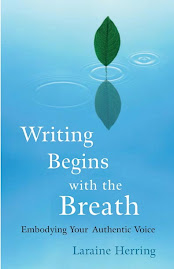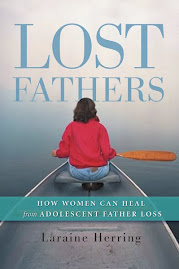
A big PSHAW to those of you who think you need the great outdoors and bright sun and bugs and no indoor plumbing or showers to have a vision quest. Pshaw. You can do it in your very own home! All the elements are there, and you can go to the bathroom indoors and take a shower whenever you get too icki-fied.
Here's how it starts. You go to see your teacher and friend (you remember the one -- the one who somehow convinced you to eat quinoa and barley and swing a 27 pound iron kettle bell around your house) to talk about bizarre happenings in your body. Turns out, all you needed was to get more white fish to balance out the orange fish in your living room. :-)
Seriously, your teacher comes over to your house and politely doesn't mention the pile of shoes in the living room (there was nowhere else for them to go!). He spends several hours in deep contemplation at the state of your house. You suddenly see your house as someone else might (as opposed to the "well, it was so much WORSE when you lived in Phoenix" lens.) You realize that indeed your house is choking, and that's really a shame because you love your house, and it probably doesn't know how much you love it since, well, you've been strangling it.
He tells you that you've lost 30% of your body mass in the past two years. Your house needs to lose at least that much. He tells you to imagine that the house is shaking. What would it get rid of? He tells you to look at each space in the house (yes, corners, drawers, and that Dark Place Where No One Knows What Lives There) and ask it if it can breathe. Take out what needs to go for that space to breathe. He leaves you with incense and a promise that he and his wife will come back and help you create a space outside the house as well. (You are She Who Kills All Things Green and know you can't manage that part alone).
You, being you, having remained stuck, suddenly erupt with a fire in the belly and spew out everything that's clogging the pathways. You work for 4-1/2 days straight. You haul car load after car load off to the dump or Goodwill or the battered women's shelter. You make piles of things for friends. You give things to Keith's children. You burn burn burn for three hours in your backyard chiminea journals from high school and college. You burn your therapy notes. Your therapy art work. Your notes and letters and pictures from things that don't matter. You find bank statements from banks that don't exist (and didn't exist long before this year of The Dead Bank). You find mortgage papers from a house you actually never owned (this one's a mystery still).
You touch every book. Every article of clothing. You try on every garment you own. If it doesn't fit, it goes in the bag. If it's too big it goes away (you're not going to be that size again). If it's too small, it goes away (you were actually never that size). You sort your jewelry by color and pass on what others might like. You pare down your scarf collection from oh, say, a hundred, to thirty.
Time loses meaning. You don't know if it's Friday or Sunday. You eat when you're hungry. You take a shower when the dirt and old energy is too much to keep holding. You become loopy from lack of sleep and your internal censor vanishes as you babble. You wonder who will emerge from this journey.
You hit the proverbial wall on Saturday when you enter your office. This room has (had) things in boxes you just carried from apartment to apartment in Phoenix, to your house in Phoenix, and then to your house in Prescott without opening them. You know (or you think you know) what's in them. You open them and you find something different from what you expected. You thought you'd find your younger self and that you'd want to keep her. Instead, you found the baggage of your younger self, and you realize you don't need that. Your younger self is not in the boxes. She is inside you, and she whispers, "Yeah, it's been 25 years. It's done." And you know it's done, and though you cry, you also dance. You give thanks.
You find pictures of yourself looking like you never remembered you looked. You find transcripts and letters of recommendation and handouts from every class you ever taught before everything went electronic. You find expired medications and cosmetics.
Empty space used to scare you before you felt what space felt like in your body. An empty wall used to feel like fingers scratching on a chalkboard. This is not true anymore. You now know every single thing that's in your house. Down to the silverware and socks.
You call your teacher and tell him to bring it on. There's room for the next thing.
(Side Note on Soundtracks: I chose a pandora.com station I created called "I Will Survive". It played disco hits from the 70s and 80s. The thump thump and familiarity of the songs helped keep me moving. Do NOT choose a soundtrack of, say, Leonard Cohen. You'll end up drinking yourself to death and pushing everything back in the closet.)
Some sample pictures:
The living room.

The corner of the living room towards the kitchen.

The corner of the living room going up the stairs.

The bedroom closet!!

My desk with my fabulous Mac.

The corner of my office.

And finally, the bottle of wine Keith and I will share tonight at the Thai House.














